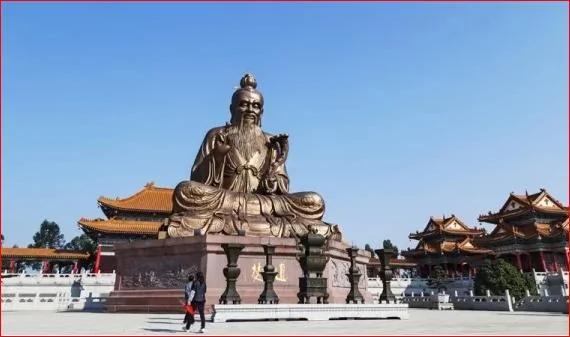By: Chenjia Liangzi
Oct 3, 2024
The idea of totalitarianism originated in the West in the 1920s, and was used to refer to Nazi Germany and the Communist Soviet Union, two new authoritarian systems that had never previously existed there. Its basic meaning is that a national ideology can influence or control all citizens through power. The term was originally proposed by Nazi scholars in a positive sense, and was later widely used in a negative sense by anti-Nazi and totalitarian scholars. The German-American political scientist Hannah Arendt is recognized as the most comprehensive and in-depth scholar of totalitarianism. In 1951, she published a monograph called The Origins of Totalitarianism analyzing the phenomenon. Arendt argued there that both the Nazi and communist regimes were new forms of despotism. The broad appeal of totalitarian regimes stems from their ideology. For Nazism, all history is the history of racial struggle, and for Communism, all history is the history of class struggle. Once this premise is recognized, all actions of the state can be justified, thereby legitimizing the social system of the totalitarian state.
Western history has seen a diversity of political systems. As early as ancient Greece, different city-states presented a variety of them, including Athens, which implemented democracy, and Sparta, which implemented oligarchy. In his book Politics, Aristotle classified the types of political systems in terms of the number of rulers and the objects they serve. The number of rulers is divided into rule by one person, rule by several people and rule by the majority (or all); services that might be provided are divided into services for all and services for some. Such possible combinations form six political systems, namely monarchy, tyranny, aristocracy, oligarchy, democracy and a plebeian system.
In his famous work The Spirit of the Laws, the eighteenth-century French thinker Montesquieu divided political systems into three basic types: republican, monarchical and despotic. Both republics and monarchies rule through law. The difference is that a republic is ruled by a few or a majority (all), while a monarchy is ruled by one person, and the monarch is hereditary. Autocracy, on the other hand, governs according to personal will and thus features the rule of man. A republic ruled by a few people is an aristocratic republic. Nobility is also hereditary, but the aristocracy adopts one person, one vote and within this limited franchise has majority rule. A republic ruled by a majority of all citizens is a democracy. In other words, an aristocratic republic is a democracy for the few, and democracy is a republic for all.
Montesquieu’s so-called autocracy refers to the rule of the Egyptian pharaohs and the autocratic monarchies in the East that had no tradition of and hence no system of rule of law. The monarchy in the European Middle Ages was a monarchy that ruled according to law, and not autocracy. However, when European medieval monarchs exercised power arbitrarily without obeying the law, this was also considered an absolute monarchy. Simply put, autocracy means that power is not subject to legal constraints and those in power rule according to their own will. Both rule by man and rule by virtue are despotic. But Eastern monarchy was not a modern totalitarian dictatorship. In both the West and the East, totalitarian systems emerged only in the 20th century. China’s past imperial autocracy was not a totalitarian autocracy. It was only after the introduction of Leninist party organizations in the modern revolution that the imperial autocracy was transformed into a totalitarian autocracy in which the party ruled the country.
There are two key factors that may make a totalitarian dictatorship possible. One is a totalitarian ideology, and the other is the supporting means of control. In the West, totalitarian ideology and the corresponding control methods were only formed in modern times. But what is noteworthy is that China has in fact had totalitarian ideology since ancient times, though it was only in the modern era that a totalitarian system was established through the introduction of modern technology and organizational means.
In the West, the Nazis’ totalitarian ideology came primarily from Nietzsche’s philosophy. Nietzsche declared that God is dead and mankind faces a void of value. Only a “Superman” could save the German nation and mankind. In Nietzsche’s view, the superman was the pinnacle of human evolution, superior to humans just as humans are superior to animals. The superman has vitality, courage, knowledge and strength, and a great desire for power. Julius Caesar and Napoleon were superman prototypes.
Based on this superman philosophy, Nietzsche described his ideal social system in The Antichrist. There he divided society into three classes. The first is the elite, who have the most spiritual power, who create value and assume the role of rulers. The second class of people is those with strong will or character. They obey the orders of the first class and are responsible for maintaining social order and enforcing the law. The third class of people are the most mediocre people, content with their ordinary lives. It can be said that Nazi Germany was completely based on this framework. Hitler and other leading Nazis belonged to the first estate, the SS and the Gestapo belonged to the second, and laborers and ordinary soldiers belonged to the third.
Nietzsche’s “superman” philosophy became the theoretical basis for the Nazi theory of Germanic superiority. The word “superman” was equated with “master race.” And where there are superior races, there will naturally be inferior races, thus providing a theoretical basis for Nazi anti-Semitism and genocide.
Why has the philosophy of the superman begotten totalitarianism? First, because it has overturned the Christian understanding that people are flawed. Christianity believes that man first has original sin and innate moral defects. On top of this, man’s ability is also limited, while God’s ability is limitless. The superman philosophy also believes that there are no absolute values and moral principles, and they all depend rather on human interpretation. It believes that human abilities are unlimited, and man can use them to conquer nature. Human beings can build a perfect society by relying on superhuman abilities. This leads to the delusion that totalitarian rule can have total control over society.
We can say that in Nazi Germany the superman was embodied as a Nazi, especially as the great leader Hitler. In communist countries, the superman is embodied in the Communist Party and its great contemporary leader. Marx said in the Communist Manifesto, “In practice, Communists are the most determined and always the driving part of the workers’ parties in various countries; what makes them better than the rest of the proletarian masses is that they understand the proletariat’s conditions, course and general laws of motion.” Lenin further developed this argument into the theory of the proletarian vanguard. The Communist Party is the most class-conscious and politically advanced part of the working class and is the leading wedge of the proletarian revolution. The party and its leaders have the highest proletarian consciousness and have a far-sighted view of class struggle and social development, as well as the establishment of a society where everyone is equal.
Under the guidance of totalitarian ideology, the rapid development (elsewhere) of modern science and technology and especially of communications and transportation via the emergence of telegraphs and telephones, newspapers and radio stations reaching the masses, and faster railways and highways gave totalitarianism a more powerful technological means of controlling society. As well as organizational models based on modern technology, fascist organizations and communist parties based on totalitarian ideology can control organizational systems at all levels and in all fields of society. As a result, they monopolized propaganda, monopolized the economy, established a complete military and police system, and controlled the entire society and everyone in it ideologically, economically, and violently. Soon enough the Nazi and Communist totalitarian dictatorships were established.
But in China, totalitarian ideology has actually existed since ancient times, in the form of the Confucian concept of the sage. Confucianism believes that people can become sages. The sage has perfect morals and superior wisdom, and great benevolence and wisdom. If sages govern the country, the world will be at peace. Yao, Shun, Yu and Zhou Gong were the sages in Confucius’s mind. Confucius praised them endlessly. “How great Yao is as a king! How great! Only heaven is great, and only Yao can rule it. He is so great that the people have no name for it. How great and admirable it is!” “How great Shun and Yu are!” “If you have the world, don’t relinquish it!” And later Mencius said: “The way of Yao and Shun cannot govern the world peacefully without benevolent government.” Confucius also said, “A gentleman has three fears: fear of destiny, fear of great men, and fear of the words of the sages.” The “sage view” of Confucius and Mencius further developed into the Confucian idea of “inner sage and external king.” The Confucian classic “Book of Rites and Great Learning” has a step-by-step description of this internal sage/external king: “In ancient times, those who wanted to show virtue to the world first governed their country; those who wanted to govern their country, first organized their families; those who wanted to cultivate their bodies first rectified their minds; those who wanted to rectify their minds needed first to be sincere in their intentions; those who wanted to be sincere in their intentions had to first develop their knowledge, and then they could understand through the investigation of things. When you know these things well, your mind will be sincere, when your mind is sincere your heart will then be upright, then your mind will be right, then your body will be cultivated, then your family will be in order, then your country will be in order, and then the world will be peaceful.”
But the Confucian sage does not advocate “strength.” Nangong Shi, a disciple of Confucius, responded to Confucius and said, “Yi was a great archer and Ao was a great sailor, but neither died a natural death. Yu and Ji toiled on the land, but they came to own the world.” Confucius thereafter praised Nangong Shi, “He is a true leader! This man truly prizes virtue!” Confucian sages convince others with virtue, not with force.
However, the Confucian understanding of the inherent goodness of human nature is wrong. The political power of China’s past dynasties was mainly established by violent means. It is impossible to establish political power and order mainly through virtue and wisdom. Confucianism has no choice but to recognize the rule established by violence, recognize and maintain the political order under heaven. It is all the king’s land, its fate determined by one person, and Confucianism must legitimize the violent seizure of power as according to heaven and responding to the acts of man. “Benevolent government” merely beautifies imperial rule and maintains the hierarchy of this rule with rituals. It is hoped that the emperors can be persuaded to practice benevolent government, and thus they are termed “sages.” “Sage” at this level now implies someone with supreme power and status.
Precisely because Confucianism believes that the emperor can be a sage in theory, it provides the legitimacy for imperial power to rule and control all the lands and subjects, and becomes the source of totalitarian ideology. Judging from the totalitarian theory that has emerged in modern times in the West, China’s view of sages since ancient times contains totalitarian ideas. It was only because traditional China lacked the technical and organizational means to match totalitarianism that it was unable to establish a totalitarian system. Theoretically, the emperor owned all the land and subjects in the world, but prevailing technical and organizational means limited his ability to fully control them.
After being affected by contact with the West in modern times, China introduced modern means of communication and transportation, and its military and police forces were greatly enhanced. Although they remained weak externally, they have been more than adequate internally. These developments greatly increase the means for autocratic rule to control society and can penetrate down to the grassroots level in society. At the same time, Marxism-Leninism, communist ideology and the corresponding Lenin-style party organization model were introduced, thus transforming Chinese governance from an imperial autocratic power to a party-state autocratic power where the party rules the country. In this process, the totalitarian ideology of communism easily connected with the original totalitarian ideology of Confucianism. The Confucian sage was upgraded to a “great man.” This “great man” has one more marker than a “sage.” In addition to being noble in morality and making wise decisions, he also has a strong will, fighting spirit and combat effectiveness — not only benevolent and wise, but also strong. This “great man” can be seen as a composite of the superman and sage. In this way, through continuous revolution in modern times, China transformed from imperial to totalitarian autocracy. From the perspective of Western totalitarian theory, the imperial autocracy of the past, i.e. the Chinese county-based system that was dominated by a Confucianism with imperial power dependent on the bureaucracy penetrating down to the counties, could be redefined as authoritarian autocracy or semi-totalitarian autocracy. But the current party-state system is a totalitarian dictatorship.
In the West, totalitarian ideology is now seen as heretical and non-mainstream. With the fall of Nazi Germany, totalitarian ideologies and systems evaporated in Western Europe. With the disintegration of the Soviet Union, Eastern European countries that were now independent from the Soviet Union, except Russia itself, also abandoned communist totalitarian ideology, and their systems transformed into democratic ones. Russia, the successor of the Soviet Union, returned to Tsarist Russia and took the form of a large-scale Aristotelian pure-majority democratic system. There, the totalitarian ideologies of Russian chauvinism and neo-Eurasianism linger on. Looking back in China, totalitarian ideology has a long history and is deeply rooted. In modern times, it has been combined with totalitarian ideologies imported from the West, combining Chinese and Western methods and learning from the best (or perhaps worst) of both worlds. At the same time, the Chinese totalitarian system is changing with each passing day as technology advances, and is constantly evolving and being perfected. Therefore, China’s totalitarian autocracy is more stable and long-lasting, and the demise of totalitarian ideology and system is far away.
This piece was translated from Yibao Chinese. If republished, please be sure to add the source and link https://www.yibao.net/?p=247914&preview=true before the text when reposting.
The author’s point of view does not necessarily represent that of this journal.























